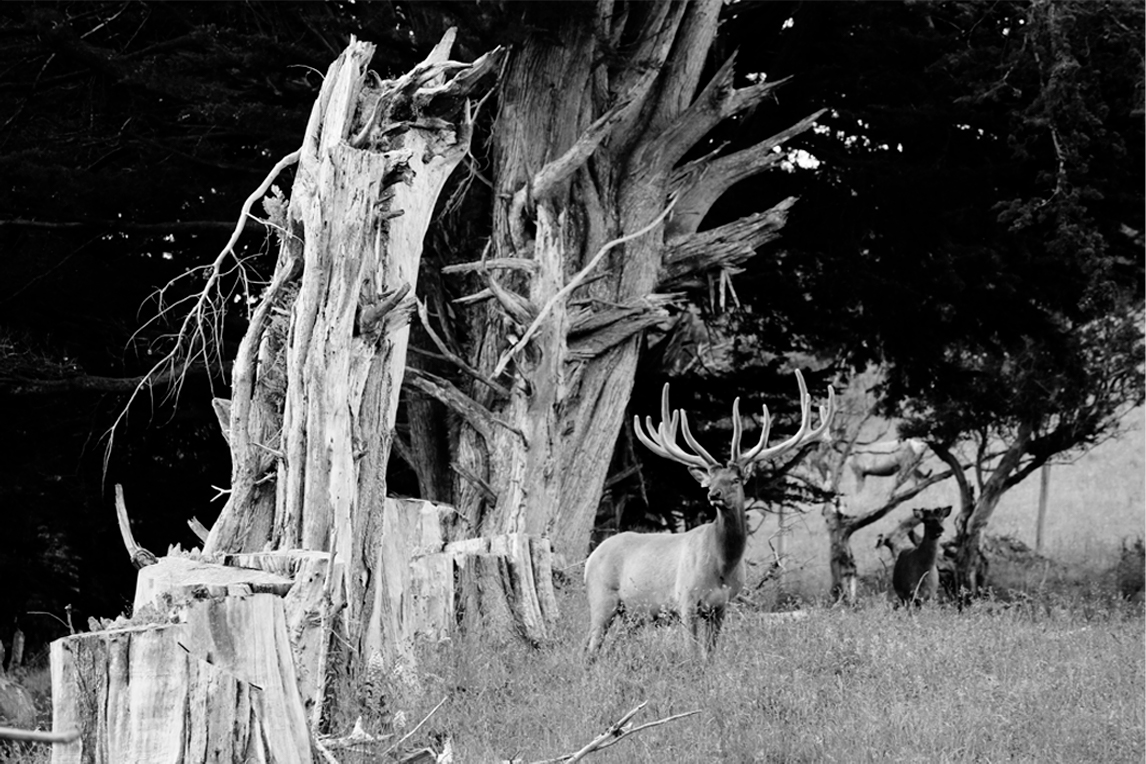Aug 10, 2023
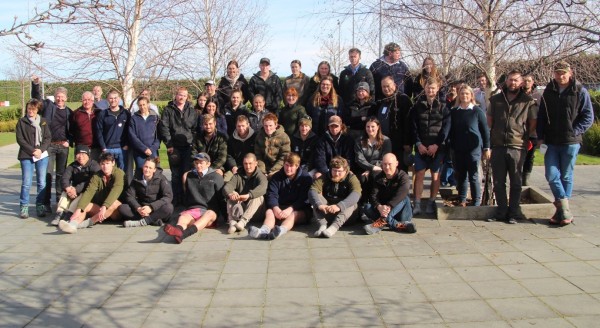
The 11th Next Generation Programme was held in Ashburton last week. Hosted by the Canterbury West Coast Branch (CWC) and The Elk and Wapiti Society of New Zealand (EWSNZ). It was a very proactive hosting offer by CWC and EWSNZ and planning has been happening for nearly a year, thanks to those involved especially Lorna Humm and Grant Hasse.
There were 50 young participants and one not so young, but still a new generation, deer farmer! This year a decision was made to maximise the attendance opportunities for first time attendees, as it was noted at Taihape last year there were a lot of repeat, repeat attendees. This is not a judgement on those attending previously and it shows how much the event is valued and enjoyed by attendees, but we noted as an Executive that we hope the Next Generation participants will make the next step up to other events like branch events, velvet competitions and conference to grow their networks to include the current generation. This time around approximately ¾ of attendees were new to Next Generation, and it was fantastic to see so many new young faces involved in the deer industry, most of them from the South Island.
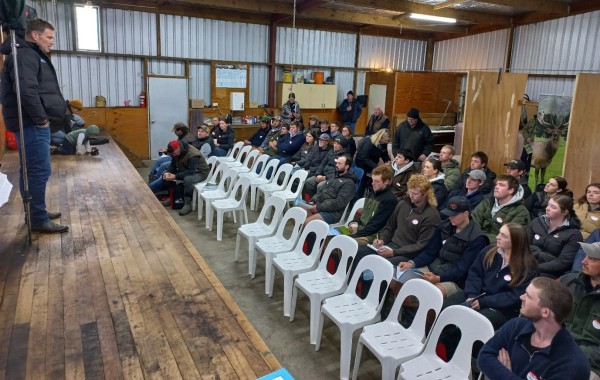
Tony Cochrane PGG Wrightson sponsor and DINZ Board member speaking to the Next Gen 2023 at The Lynnford Farm woolshed.
The programme had a wide variety of indoor and outdoor, viewing, presentations and workshopping to broaden the Next generation’s knowledge of deer, deer farming, deer products, the deer industry, career opportunities, business opportunities and pathways within the industry.
Day One
Lynnford Farm
Day one kicked off at Lynnford Farms which is Peter, Di and Thomas Lowe’s mixed farming business at Hinds. The property is a cropping sheep and deer operation, with the deer business being a very simple wapiti breeding and finishing system. The deer operation covers 35 ha and carries 130 wapiti hinds, 3 sire bulls and 110 R1 finishing progeny. Replacement wapiti hinds are purchased in each year from Te Anau, and focus for the Lowe’s is finishing high carcass weight R1’s. Last year they experimented with three slaughter dates, two early kills and growing out the last 30 until 06 January for the Mountain River Elk meat market.
Lynnford Farm is in the Hinds River flat area, which used to be a huge peat swamp. The Hinds River was actually hand cut using horses to help to drain the area, which is amazing. A legacy of this and farming means that the Lowes and others in the area operate strict nitrogen caps off the farm and also low limits in the Hinds River. Pete Chairs the Hekeao/Hinds Water Enhancement Trust. This trust is doing remarkable work to enhance the catchment and rehabilitate the waterway check out their website for more details www.hhwet.org.nz. I won’t say much more other than it seems incredulous how hard this trust is working for a huge environmental benefit, but yet it would appear that red tape is working very hard to stifle their ambitions.
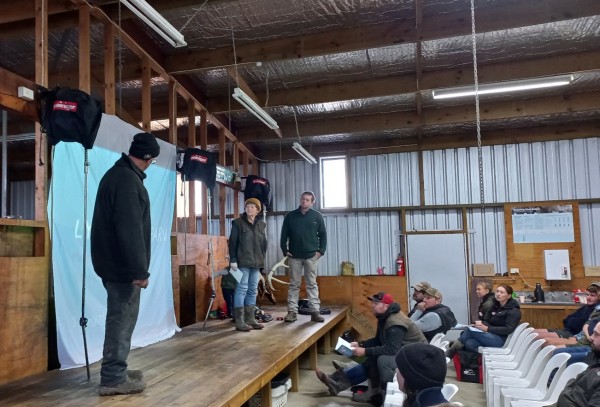
Pete, Di and Thomas Lowe introducing Lynnford Farm to the Next Generation participants.
The day at Lynnford Farm continued with a rotation three small group workshops with a focus on wapiti, one on personalities, handling, and handling systems, a second on reproduction and the third on animal health. There was good engagement using these smaller groups and it was interesting to see the wide range of knowledge among the group about wapiti. From a personal perspective it was a good reminder how they really are the Next Generation, as most of the group had not heard many of the old dogmas about farming wapiti and it took some hard work from Grant Hasse to discover this! There was a great lunch served in the woolshed including some hot soup to warm everybody up.

Lynnford Farm wapiti on their winter crop break.
Topical Workshops
The afternoon was back at hotel Ashburton again with a small group rotation of three topics. The focus of these topics was around careers, pathways to farm ownership, pathways other than farm ownership and creating equity and a business profile to impress bank managers.
The sessions were one by Fergus Wakelin who now farms at Mt Somers. Fergus brought a rough block of land in 2013 and has been working hard and innovatively since to build it up to a 500-animal mixed breeding, finishing, and velveting operation from 5 in 2018. Fergus has a massive passion for deer and especially enjoys planning breeding and seeing the outcomes. Fergus has and does lease farms and runs a contracting business with his brother. Fergus has used his contracting business and dairy grazing to create equity which he has used to invest into his farming business. His dream is to have a farm that he can pass on to his children.
Next up for us were Tim and Ben from ANZ, they are part of the Wholesale Agribusiness team who lend between $500,000 and $4,000,000. They gave a down to earth talk about what banks are looking for with anyone looking to create a business proposition.
- First and foremost, think about your equity position because it is that equity which you leverage, so start saving: You need some equity.
- Think about your business proposition and ensure you can clearly demonstrate the potential you have to create value.
- Have a strong team behind you, that they know they and you can rely on to create that vale and reduce their risk. A good team will have experience to support new young businesspeople, so a good lawyer, experienced farmer, farm advisor, accountant farming or business mentor.
The final piece of the business or career pathway were Jamie and Lee Lamb, who currently manage Whiterock and Stew Point Stations up the Rangitata Gorge for Rooney Farms. Jamie and Lee have a wealth of different farming experience, on different farm types and parts of New Zealand. They are big advocates of taking opportunities that are presented and keeping on upskilling, especially with formal training. They advise not to pigeonhole yourself as you never know what you will really enjoy if you don’t try it.
A key junction in their journey was trying their hand at dairy farming, with the view to build equity and get into their own farm. Jamie found out that he really didn’t have a passion for dairy farming, they moved to a deer trophy operation in Wanaka and haven’t looked back since. They now feel that they are very happy not owning a farm, there are some stresses and headaches that they don’t have from that, and they are very happy currently managing, so you don’t necessarily have to own a farm to enjoy a farming lifestyle.
The day concluded with dinner at Smoke, a quiz, and a herd of elephants at 2:30 am.
Day Two
Northbank Station
The second day saw everyone assemble bright and early at Northbank Station. Northbank is another property on the plains, it surrounds Mountain River’s Deer Slaughter Plant and Affco’s sheep plant. Northbank and Mountain River are owned by the same company and Northbank is there to help smooth stock flows and keep Mountain River operating at full capacity whenever possible.
Adam Waite is the manager of Northbank and he arrived there from Rangitaiki Station just before they embarked on a major redevelopment from border dyke to spray irrigation. The property buys in and finishes around 5500 R1’s, they have 250 velvet stags to spread business risk and 600 Angus steers to finish for Silver Fern Farms, they also sell surplus pasture as a standing crop, mostly to dairy farmers.
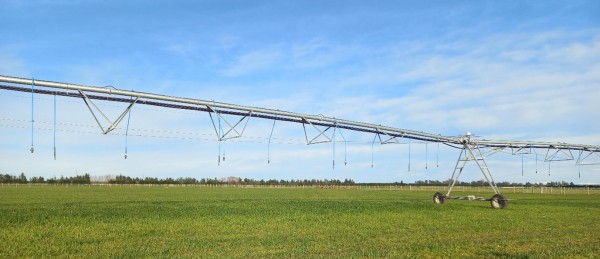
Irrigator at Northbank, very long irrigators with gates and electric bungees to allow movement between paddocks. Northbank disperses the wastewater from Mountain River and Affco plants, via piping underslung on the irrigators.
Northbank Station is an impressive operation on 599 effective ha, until recently it was run by just Adam and one other staff member. Adam keeps things simple with large mobs of around 700 currently on farm drafted by sex and weight (they can weigh a deer every 8 seconds). Adam buys in weaners from February and is very careful to set a fair market price and expectation, he also goes to the farm to drench (anthelmintic and magnesium oxide) all animals onto the truck himself. Weaners are sourced through farms with an ongoing relationship and also through agents.
There are a range of specialist pastures that are used for different benefits as the season moves on, and selling surplus allows quality to be maintained. Wintering is on fodder beet, and kale with chop lucerne and maize silage at approximately 1.5 kgDM/hd/day. The farm targets a >60 kg carcass and only quits the last stock at the end of the season, as they will not put on much weight for the next winter to 12 months, this year Adam has increased the number of wapiti to 1400 contracted to the Mountain River Elk meat market. Adam stressed the opportunity for autumn growth that he targets aiming for 300-400 g/day. New animals arriving at Northbank are initially kept in their farm mobs to help them settle before being drafted into larger sexed mobs. Magnesium oxide supplementation to calm or settle weaners was a frequent theme throughout the two days; while Adam gives it orally, the Lowes broadcast it on pastures. It is hard to do justice to the operation at Northbank the development that has occurred under careful planning and innovation by Adam to maximise the benefits of the irrigators, create a good stock flow and rotation while minimising gates and fences is very impressive. Having not been on Northbank since 2012 when it was border dyke irrigation with a lot of browntop pasture it is a remarkable transformation particularly when Adam has no irrigation experience.
From Northbank it was off to the Dunsandel Community Centre for morning tea and some talks about the market and cadet opportunities.
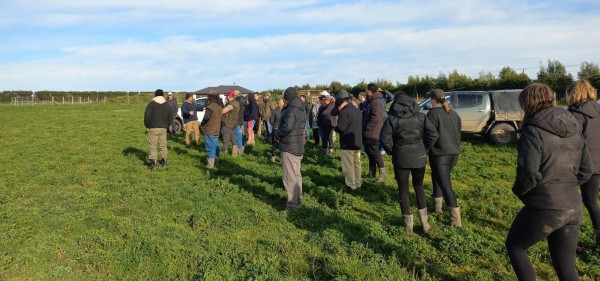
Next Generation crew with Adam Waite explaining the operation across the road and his dream of an underpass linking to the main farm. Underfoot is some old dryland pasture mostly lucerne which is due for restitching.
Markets
John Sadler, Rob Millar and Kerry Whiting from Mountain River Venison talked about the market opportunities they had found for wapiti/elk meat. Mountain River Venison employs >70 staff and they aim to cut and package as much consumer ready product as possible at their plant. John and the marketing team have found some unique markets for product including Switzerland where wapiti meat is marketed for excellent prices and attracts a non-traditional game consumer to use venison year-round in different ways. They also have strong relationships in the US market with Force of Nature, which has pasture raised 1 pound ground elk meat and venison brick products, along with a venison ancestral blend including heart and liver. They also do medallions and a venison tomahawk steak, which is very popular. Having elk as a product gives New Zealand an extra string to its bow in this market.
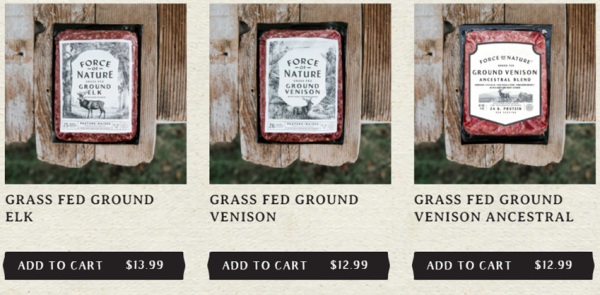
Force of Nature’s three ground products, nice diversity from our NZ cervid farming industry.
The markets session rounded off with Daniel Jenkins and Ross Chambers from Provelco talking about the velvet markets and the best ways to create value on farm with your velvet. Daniel stressed the importance of knowing your grades that work best for each animal and cutting early. He especially highlighted not to chase weight on lower velvet grades, cut them early and get extra value with regrowth. With Non-Traditional types, balance the opportunity to add extra weight, but don’t let it go to Overgrown, especially as you sacrifice regrowth value there too. His final tip was, use your measuring tapes and grading tools to ensure you hit the right grades.
Ross and Daniel also talked about the overseas markets and pathways to markets, especially the challenges around the current arrangements with a single port of entry in China and their hopes for the China Velvet Coalition to get new market traction in China.
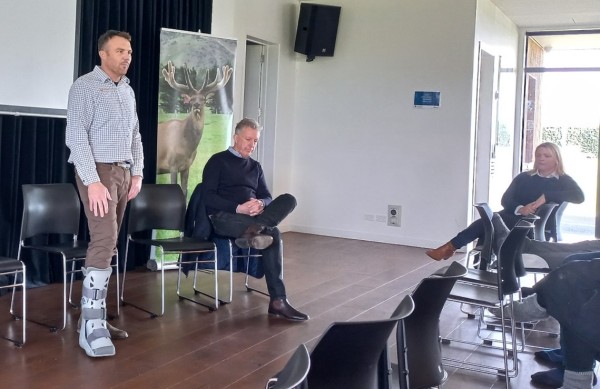
Daniel Jenkins, Ross Chambers and Lorna Humm (Provelco and CWC NZDFA Chair), ponder how much quicker Daniel’s torn archilles will heal with velvet supplementation.
Training
The day rounded out with Training Manager Kristen O’Callaghan and Cadet Charlie outlining the Coleridge Downs farming and cadet training operation. Coleridge Downs is part of the Erdmann family business. The Erdmann family are based in Maui, Hawaii where they have an elk and cattle ranch and several food businesses. They are strong believers in training, improving people, conversation and communities and instigated the cadet training across their farms in the Rakaia Gorge. The cadet training takes four school leavers annually and cadets stay for two years, taking leadership roles in their second year. Cadets are a critical part of the workforce in the Coleridge Downs group of farms, and they take on a lot of responsibility in their roles. Places are hotly contested with 35 applicants last year.
The operation is managed by Tony Plunkett and along with Coleridge Downs there are three other stations, Big Ben, Dry Acheron and Annavale, each offering a different farm and farm system type to the cadets. The story of Coleridge Downs and what the team and the Erdmann family is a really good story of positive proactive overseas ownership in a New Zealand farming business. https://www.coleridgedowns.co.nz/
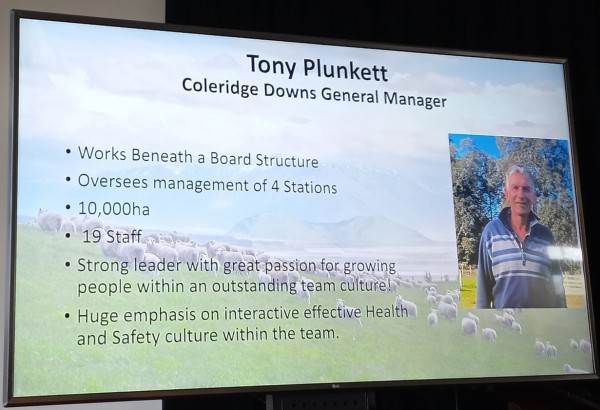
Coleridge Downs introductory slide for Tony Plunkett.
Thank you
It was another really good Next Generation Event, and the attendees were very engaged and enthusiastic, it will be the North Island’s turn to host next year.
Thanks to everybody who helped out and participated and especially to the sponsors: NZDFA, EWSNZ, DINZ, PGG Wrightson, Ravensdown, Provelco, FMG and Vet-Ent.

